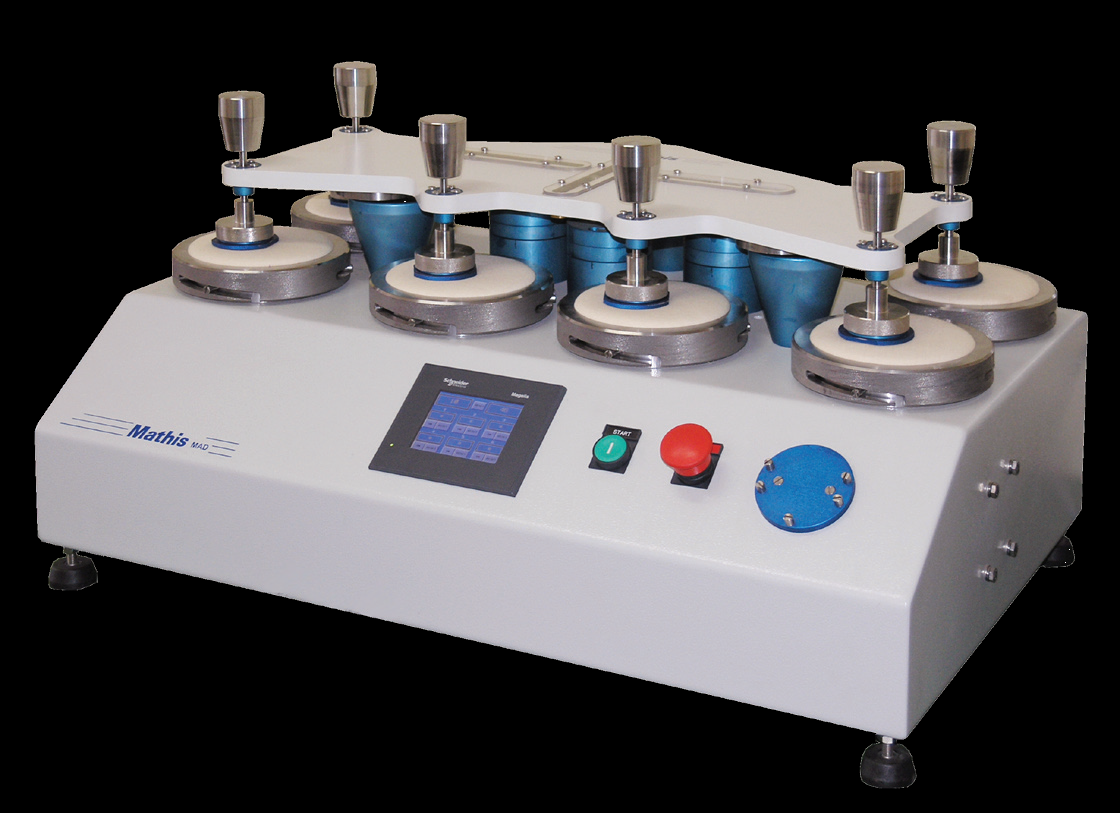Laboratory Martindale wear simulation without standard reference
The Laboratory Martindale wear simulation without standard reference is a specialized testing service aimed at providing detailed insights into the abrasion and pilling resistance of textile materials. This service is particularly valuable for quality managers, compliance officers, R&D engineers, and procurement professionals who need to evaluate the durability and longevity of fabrics under controlled conditions.
The Martindale method simulates real-world wear and tear through repeated friction between a specimen and an abrasive fabric. Unlike tests that rely on standard references like ISO 12947-2 or ASTM D3885, this service allows for customization to specific client requirements without adhering to predefined protocols. This flexibility is advantageous when clients have unique material properties or product designs that do not align with existing standards.
The test setup includes a Martindale machine equipped with various fabrics and weights to simulate different types of wear scenarios, such as denim jeans against a cotton fabric or silk against wool. The abrasion resistance is quantified by measuring the loss in weight or length of the specimen after predetermined cycles of friction. Pilling resistance is assessed by evaluating the formation of pills on the surface.
Preparation of the specimens involves ensuring they are representative of the intended product and free from defects that could influence test results. Specimens can range from woven fabrics like cotton, polyester, and blends to non-wovens and knits. The Martindale machine operates under controlled conditions, including temperature and humidity, to ensure consistent testing environments.
Post-test analysis involves detailed reporting that includes the amount of weight loss or length reduction for abrasion resistance and the number and size of pills formed during pilling resistance tests. These metrics provide a comprehensive understanding of how the fabric performs under simulated wear conditions, aiding in quality assurance and product development.
Scope and Methodology
| Aspect | Description |
|---|---|
| Test Setup | The test utilizes a Martindale machine with various abrasive fabrics and weights, simulating real-world wear conditions. The setup can be customized to client specifications. |
| Preparation of Specimens | Specimens are prepared to ensure they represent the intended product and are free from defects that could influence test results. Materials include woven, non-woven, and knitted fabrics. |
| Testing Parameters | The machine operates under controlled conditions of temperature and humidity, simulating real-world wear scenarios for accurate testing. |
The methodology involves subjecting the specimens to repeated friction cycles using the Martindale machine. The duration and number of cycles are determined by client requirements or industry standards where applicable. Post-test analysis is conducted to measure weight loss, length reduction, and pilling formation.
Industry Applications
| Industry Sector | Application Description |
|---|---|
| Fashion & Apparel | Evaluating the durability of fabrics used in clothing, especially for outerwear and workwear. |
| Footwear | Assessing the abrasion resistance of materials used in shoe soles and uppers. |
| Furniture & Upholstery | Testing the pilling resistance of fabrics used in furniture upholstery to ensure longevity. |
| Automotive | Evaluating the durability of seat coverings and interior textiles under simulated wear conditions. |
The Martindale test is crucial for these industries as it helps manufacturers and suppliers ensure that their products meet quality standards and perform well in real-world scenarios. By customizing the testing parameters, clients can obtain data specific to their product designs, enabling informed decisions about material selection and product development.
Why Choose This Test
The Laboratory Martindale wear simulation without standard reference offers several advantages over traditional tests that rely on predefined standards. Firstly, it allows for customization to meet specific client needs and product characteristics, ensuring more accurate and relevant test results. Secondly, the flexibility of this service enables clients to explore unique testing scenarios not covered by existing protocols.
Thirdly, the detailed reporting provided by this service offers comprehensive insights into how fabrics perform under simulated wear conditions. This information is invaluable for quality assurance teams looking to improve product longevity and customer satisfaction. Additionally, the absence of standard references means that clients can avoid the constraints imposed by rigid testing protocols.
Lastly, the Martindale test provides valuable data on abrasion resistance and pilling formation, which are critical factors in determining the durability and appeal of textile products. By investing in this service, clients gain a competitive edge by ensuring their products meet or exceed quality expectations.





